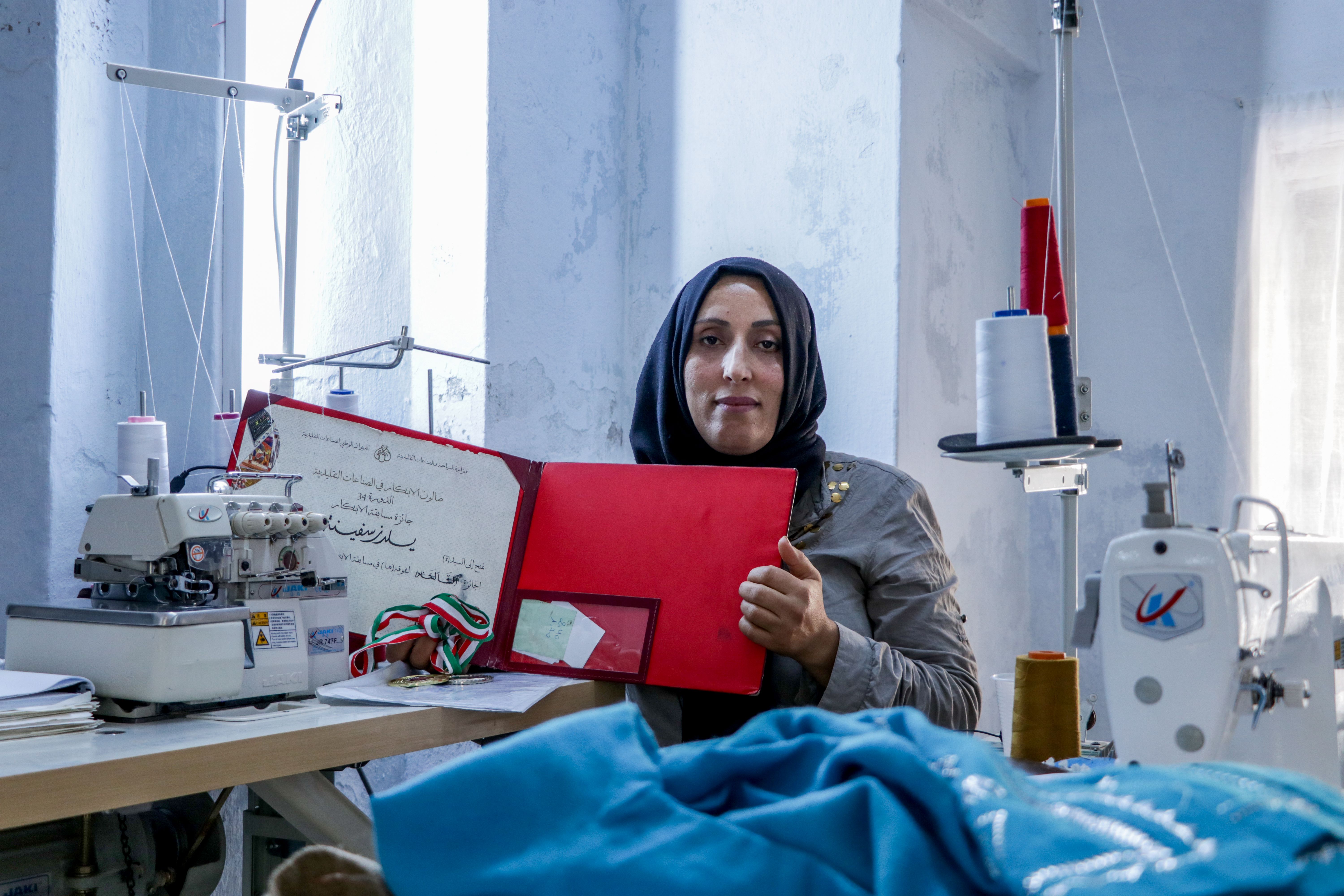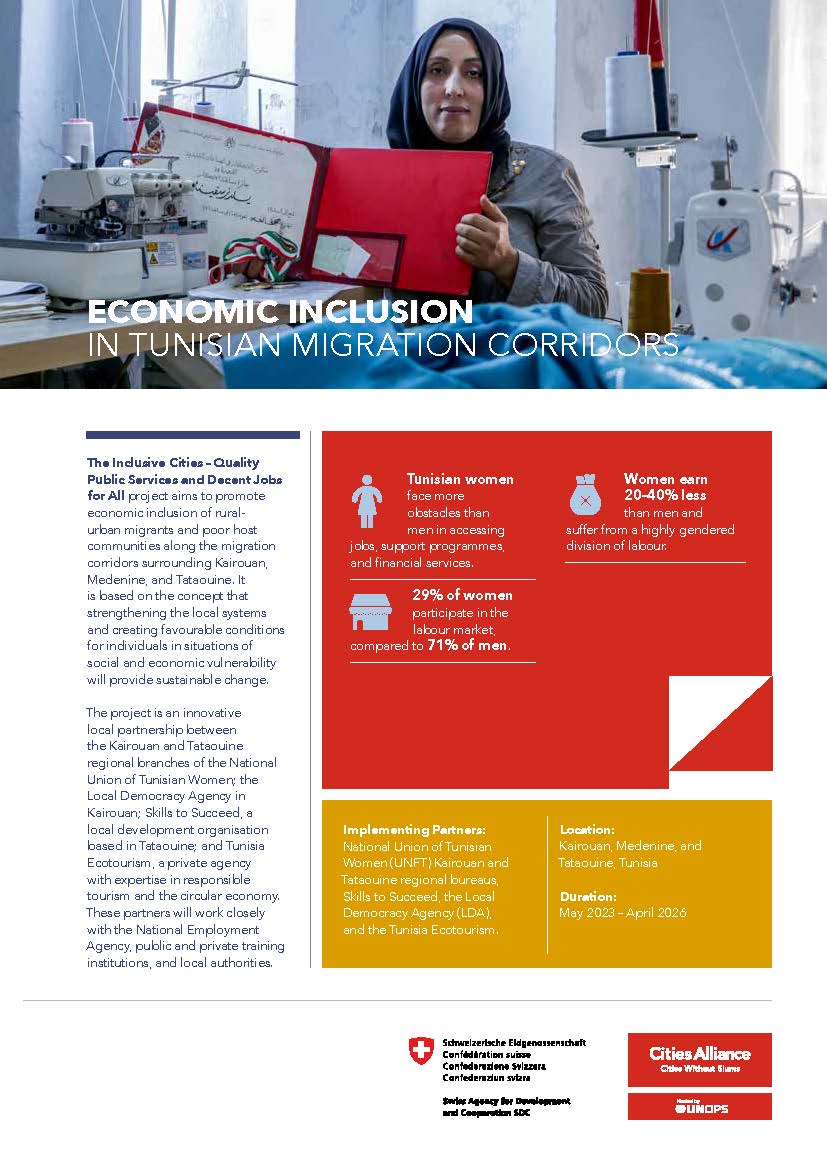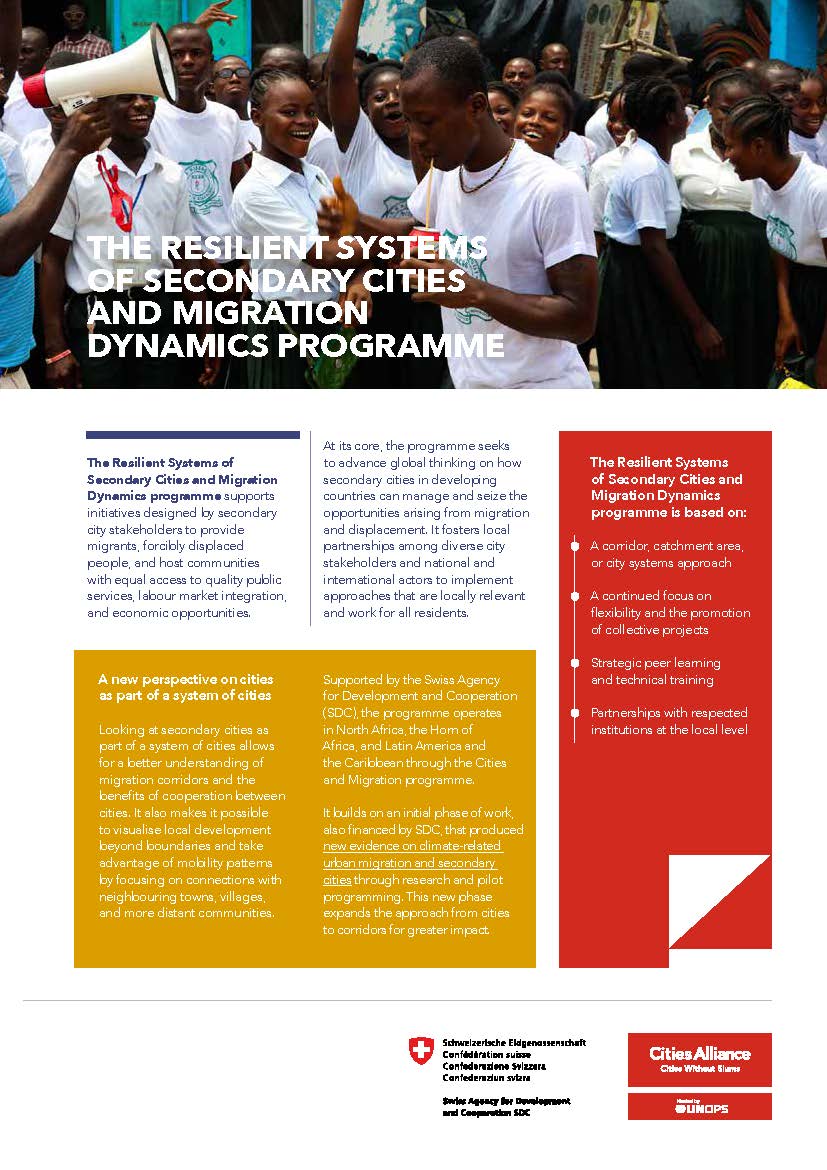- Who We Are
- How We Work
- Regional / Country Initiatives
- Legacy
- Core Themes
- Working Groups
- Portfolio & Results
- Newsroom
- Resources
Economic Inclusion in Tunisian Migration Corridors


Internal labour migration is a major phenomenon in Tunisia. It is a direct result of stark socioeconomic disparities between the disadvantaged interior regions and the more dynamic, prosperous coastal regions.
Tunisian municipalities that already lack human and financial resources face challenges in integrating young labour migrants from rural areas while remaining attractive to their original residents, providing equitable access to quality public services, and providing economic opportunities to all residents across the municipal territory.
This project aims to promote economic inclusion of rural-urban migrants and poor host communities along the migration corridors surrounding the municipalities of Kairouan, Medenine, and Tataouine.
It focuses on collaborative approaches with the private sector and public authorities to enhance efficiency, scale, and sustainability of the interventions.
It also adopts an integrated territorial development approach that emphasises a
more equitable distribution of employment opportunities and municipal services across the entire municipal territory.
This approach aims to particularly benefit women. A lack of accessibility and quality of basic services have entrenched persistent gender inequalities in more remote areas of the three municipalities. Long distances and poor public transport to urban service centres disproportionally affect women and severely reduce their mobility.
The project is part of the Resilient Systems of Secondary Cities and Migration Dynamics Programme financed by the Swiss Agency for International Development and Cooperation (SDC).

